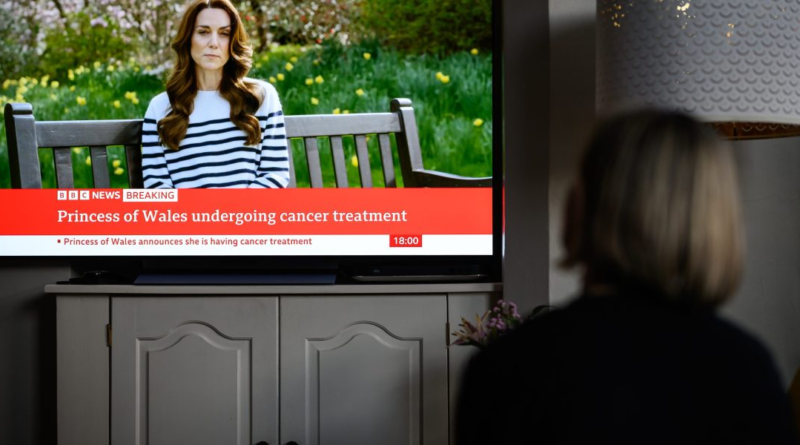1 in 4 people skip regular checkups–and forgo their chance to benefit from early cancer detection. It’s time to nag the ones you love
In recent days, the world has turned a collective sympathetic ear toward Buckingham Palace with the sad news involving the Princess of Wales, a young, healthy, and active mother and international figure facing a very public and significant health crisis. Our thoughts and prayers are that the situation was diagnosed early and that she makes a full recovery.
This news should remind all of us of the importance of being proactive in our personal health care journeys, even when we are young. We must listen to the voice in our heads that often screams at us, telling us to pay attention.
One in four people report having skipped regular checkups, according to the 2023 Aflac Wellness Matters Survey. Half admit to having avoided a common health screening while, ironically, 51% of those same respondents who have experienced a cancer diagnosis say they were given the news following–you guessed it–a routine medical exam or screening. There is a paradox going on here: Routine doctors’ visits can significantly help with early detection–but too many people are skipping them.
The survival rate for many forms of cancer–including pancreatic, lung, and breast cancer–is on the rise, and positive outcomes are often linked to early detection, especially as the technology used to detect cancer is becoming more sophisticated and treatments for this disease continue to improve.
Today, chemotherapy is often delivered through a pill instead of a hospital stay. Immunotherapy is considered the standard of care in multiple cases. Telemedicine, rather than in-person appointments, are more readily available for routine follow-ups and monitoring of disease progression.
With all of this great news, something else is patently true. In order to benefit from early treatment, you first need to know about the problem. It’s become easier than ever to see your doctor, but still, you have to take the first step. You have to be proactive in your own health care protocol. You need to set aside the “it can’t happen to me” attitude in favor of “better safe than sorry.” I know I am nagging, but more on that in a minute.
As a husband, father, and the president of a leading insurance company, I’m making it my personal and professional mission to urge individuals to act now. Make the appointment for your annual physical. Ask your primary care physician which screenings you should be getting based on your age and your personal and family history. And, most importantly, nag it forward. Nag the ones you love to take control of their health through checkups and early detection screenings.
If this sounds a bit urgent, that’s because far too often I see the results of waiting or not acting at all. According to that same survey, 64% of people say they are more likely to go to the doctor because a friend or a loved one encouraged them to do so. In other words, people respond to nagging.
This sounds basic, but it is true. Technology and treatment advancements can only address illnesses if you are aware of them, and they alone won’t make enough of a dent in overcoming the unequal burden of cancer, particularly in the Black community, where cancer skews more challenging–a fact of particular importance to me as a Black man with a family of Black women.
I view it almost like using the seatbelt in your car. It’s right there where you sit, and its primary mission is to make you prepared for what you hope will never happen. It’s early accident detection, and we wear them all the time.
Similarly, health care innovations can only help you and your family if take the first step. So, tell your loved ones to go to your appointments and preventive screenings to maximize the chance that diseases like cancer are detected at early stages, just like you’d remind them to buckle up before leaving the driveway.
If your family and friends resist your nagging, then double down on your care, concern, and compassion. We nag the ones we love because, well, we love them. Maximizing the chance of early detection maximizes the chance of survival, and that means this old-fashioned, verbal communication to those we love has the potential to save their lives.
Join me in fighting against this unequal burden by nagging the ones you love.
Virgil Miller is the president of Aflac U.S.
More must-read commentary published by Fortune:
The opinions expressed in Fortune.com commentary pieces are solely the views of their authors and do not necessarily reflect the opinions and beliefs of Fortune.



